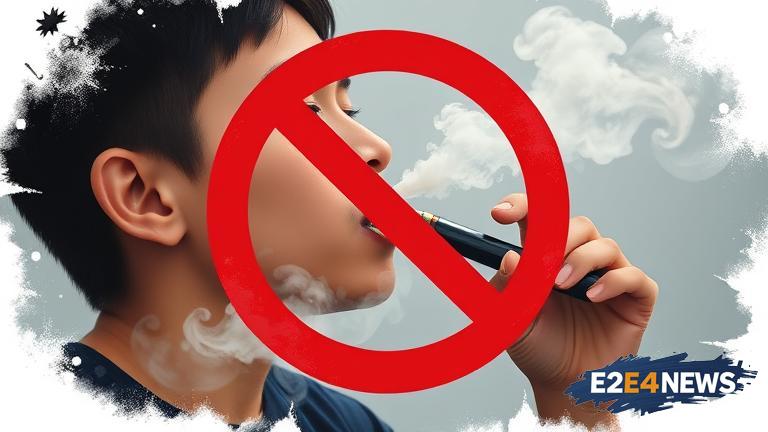The Malaysian government has taken a significant step towards protecting the health and wellbeing of its citizens, particularly the youth, by implementing a ban on vaping. This move has been widely welcomed as a timely and bold step to tackle the rising issue of youth addiction to e-cigarettes and vaping products. The ban, which came into effect recently, prohibits the sale, distribution, and possession of vaping products, including e-liquids and devices. The government has cited the growing concern over the health risks associated with vaping, including nicotine addiction, respiratory problems, and other health issues, as the reason behind the ban. The move is also aimed at preventing the spread of vaping among young people, who are often targeted by the vaping industry with flavored products and attractive packaging. According to statistics, the number of youth vaping cases has been on the rise in Malaysia, with many young people becoming addicted to nicotine and other substances found in e-liquids. The government has warned that vaping can lead to serious health problems, including heart disease, stroke, and other cardiovascular conditions. The ban has been hailed as a major victory for public health advocates, who have been campaigning for stricter regulations on the vaping industry. The move is also expected to have a significant impact on the vaping industry, which has been growing rapidly in Malaysia in recent years. Many vaping shops and online retailers have been forced to shut down, and others are expected to follow suit. The government has also announced plans to increase awareness and education about the dangers of vaping, particularly among young people. This will include public awareness campaigns, school programs, and community outreach initiatives. The ban has also been welcomed by parents and educators, who have been concerned about the growing trend of vaping among young people. Many have expressed relief that the government has taken decisive action to address the issue. However, some have also raised concerns about the potential impact on small businesses and individuals who rely on the vaping industry for their livelihood. The government has assured that it will provide support and assistance to those affected by the ban. The move is also expected to have a positive impact on the environment, as vaping products have been found to contribute to litter and pollution. The ban has been praised by international health organizations, which have been calling for stricter regulations on the vaping industry. The World Health Organization (WHO) has welcomed the move, saying that it is a significant step towards protecting public health. The ban is also expected to have a positive impact on the economy, as it will reduce the burden on the healthcare system and reduce the costs associated with treating vaping-related illnesses. Overall, the ban on vaping in Malaysia is a significant step towards protecting public health and addressing the growing concern of youth addiction. It is a bold and timely move that is expected to have a positive impact on the health and wellbeing of Malaysians, particularly young people.
